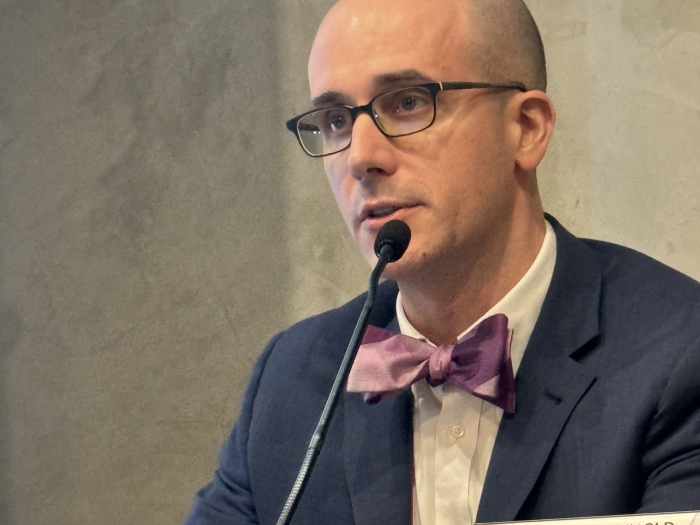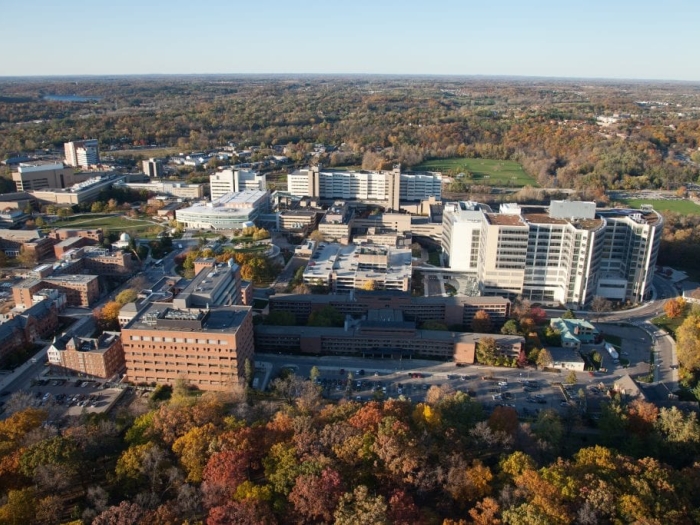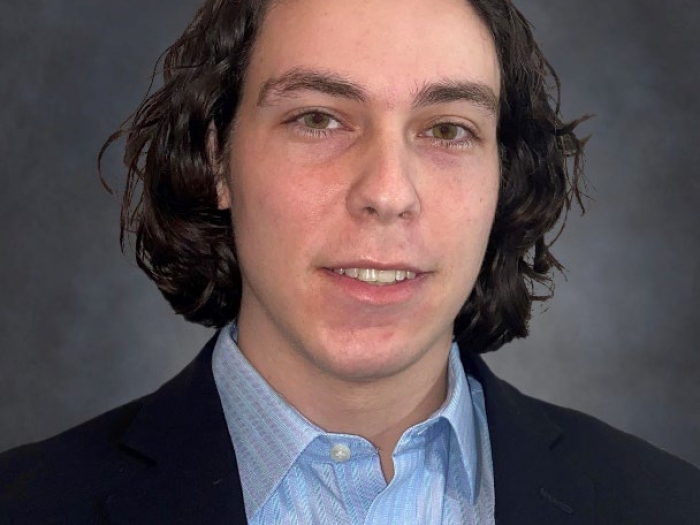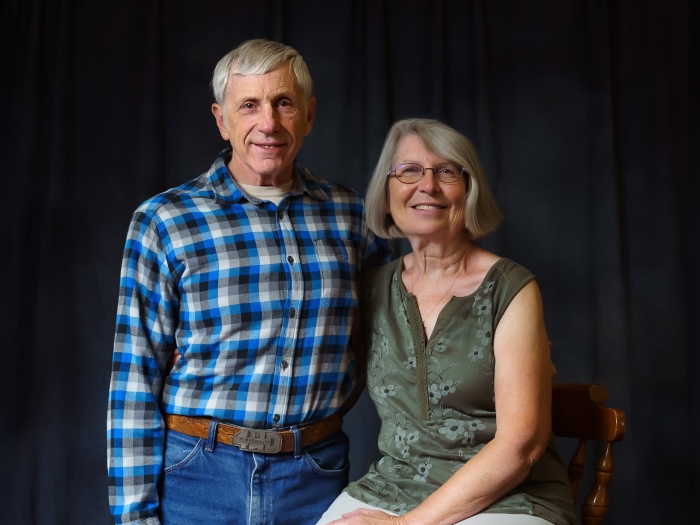6:48 PM
Author |
My interest in the space sciences began in 5th grade when I read a biography on Robert Goddard (creator of the first liquid-fuel rocket). To say reading was a hobby would be an understatement because I could never be found without a book in my hands, but the stories I most enjoyed reading most were those that got me closer to space and the stars – stories such as biographies of Edwin Hubble, Neil Armstrong, Buzz Aldrin, or Sally Ride. As a child, I would fervently follow all NASA updates, mesmerizingly look at the night sky for hours, and watch all the space-related documentaries I could find.
Contributing to the advancement of the space frontier became my greatest childhood dream. To make this dream a reality, I always naively believed that I had to pursue a career in engineering. So, when I fell in love with biology and medicine at the end of high school, I thought my dream would remain just that. I did not know how to marry my love for medicine with my avid interest in space until I eventually learned of aerospace medicine (and its subset field of space medicine) whilst researching medical schools. Albeit a little late, I realized that I no longer wanted to delay pursuing my passion for space, and – as Professor Randy Pausch once said in his famous book The Last Lecture – I wanted to make my childhood dream a reality. Thus, when I was accepted to the University of Michigan Medical School in 2017, I committed to making a career for myself in space medicine and to bring it to my school and my peers.
Since then, I've immersed myself in the field and tried to soak up everything about it. I first attended the Red Risk School webinar series as an M1, which was how I learned of the Aerospace Medicine Association's (AsMA) meeting the following month. I instantly spoke to my school counselor, Amy Tshirhart, to arrange for time off to attend the meeting. Amy knew of my interest in space medicine, and she has been my greatest advocate in pursing this interest during medical school – for which I will be eternally grateful! Attending that AsMA meeting in May 2018 was nothing short of a breath of fresh air for me. I felt rejuvenated and at awe at the world I stumbled upon where everyone shared the same passion for medicine and space as I did. I was shocked that I did not know about this community earlier, but I was committed to getting involved as soon as I could.
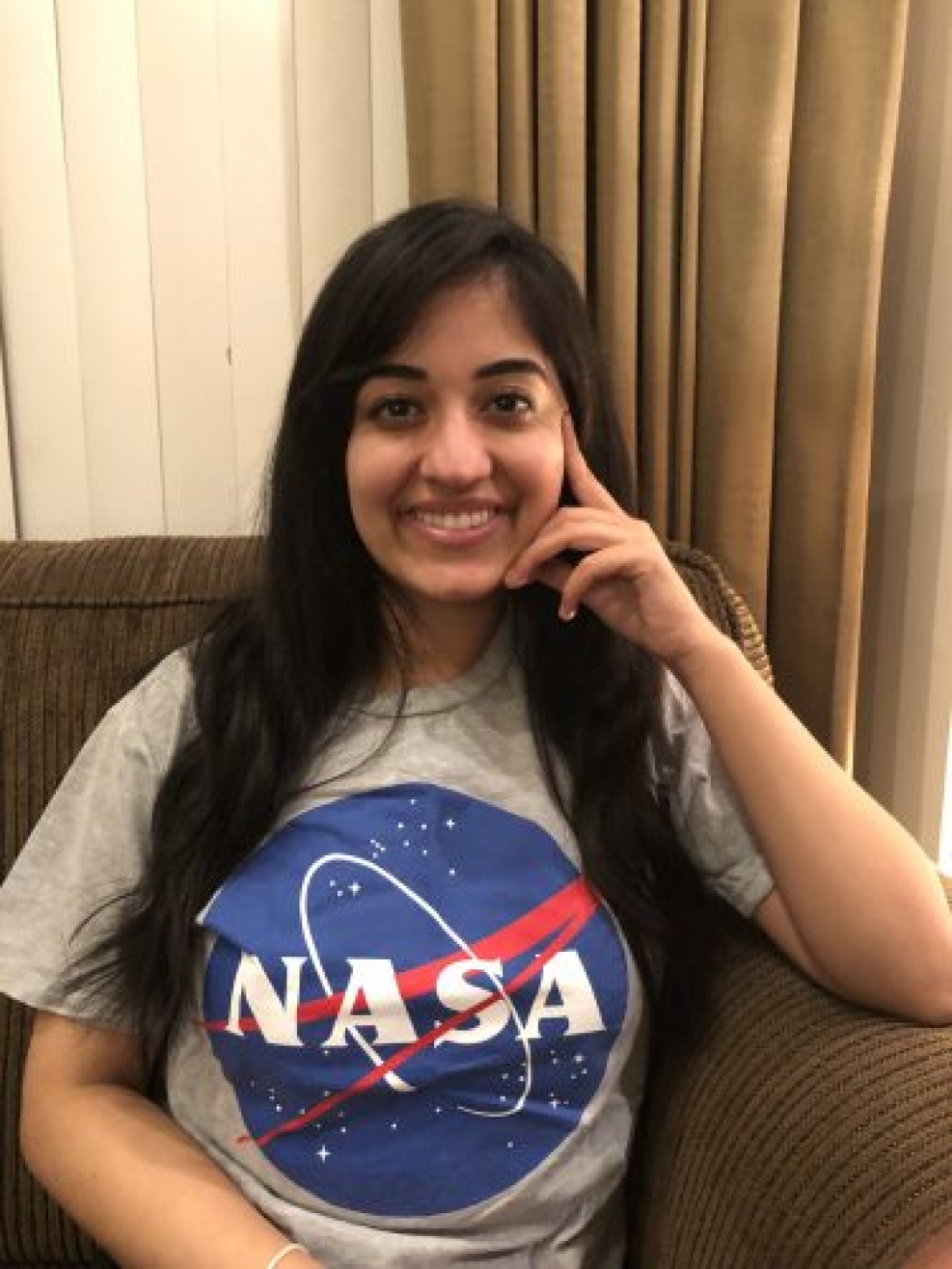
Over the next few years of medical school, I slowly but surely began to reach out to faculty who could mentor me in this interest. It took me a while to collate a list of names – as this is quite a niche field – but everyone I spoke to was immensely supportive of my interest and supportive of helping me further develop it! This is what has been the best aspect of being at a school like the University of Michigan; instead of giving me a puzzling look when I said I am interested in space medicine, everyone at the school instead responded with curiosity, awe, and an equal eagerness to bring this unique topic to the school and share it with others.
With support from faculty and peer mentors (both at U-M and within the national aerospace medicine community I was now connected with) I applied to and have gotten accepted to NASA's Aerospace Medicine Clerkship and the University of Texas Medical Branch's Course in Principles of Aerospace Medicine – both of which I am scheduled to attend this year. Just earlier this week, I also submitted my application to a new medical student rotation at SpaceX! The opportunities for students are expanding, and I have been very excited about this!
First, I led the development of a two-week online and self-paced Introduction to Space Medicine elective for Branch medical students, which launched this January! The aim of this course is to create an online curriculum that informs students about the field and principles of space medicine. The goal is to inspire students to engage with and contribute to the ongoing efforts within the field of space medicine, to explore the possibilities of building a niche in this field for their future careers, and to become the next generation of leaders in space medicine. Through a series of readings, PowerPoints with integrated case studies, journal articles, online lectures/videos, podcasts, other supplementary assignments, and quizzes/assessments, students will gain insight into the field of space medicine, the effects of microgravity on human physiology, the health challenges associated with prolonged spaceflight and aviation, and current clinical applications to mitigate these risks. Through this course, students will also be introduced to the work of various leaders in the field of space medicine, and interested students can ask to be connected to these folks as career and research mentors.
This course has been well received by the 20 enrolled students thus far, and my next goal is to expand it to other schools at the University of Michigan and other medical schools nationwide. I developed this course with the help of a six-student team (across three different medical schools) and my faculty course director, Dr. Jim Bagin (ex-NASA astronaut and faculty in the Department of Anesthesiology). I owe a lot to my team to helping make this vision a reality! My partner in crime in this project, Riley Ferguson, has also arranged for this course to launch at her medical school (the University of Cincinnati College of Medicine) in January of 2022!
Second, I created a chapter for the Aerospace Medicine Student and Resident Organization (AMSRO) in the Fall of 2020 to serve as an interest group at the school, and I have been using the platform to help other interested students gain a footing in this field. I organize monthly talks and seminars which have drawn students from all over the world (UK, Russia, Saudi Arabia, India, Hong Kong, Malaysia, and Australia)! At the end of the day, I am most happy to cultivate students' interests in this way and to promote connections and mentorships in this field for all.
Overall, though it certainly took me some time to find the space medicine community, now that I have, I am more eager than ever to dive in and contribute. I am humbled to see what has come of a vision I had early on in medical school, and I am excited to see what more will come of it! I know that with the support of the administration here, space medicine at UMMS will continue to grow and reach more students each year and expand nationwide!
Ultimately, my long-term goal is to combine my medical training and passion for space by contributing to the advancement of commercialized spaceflight one day. Achieving an enhanced understanding of this topic is of particular importance with the advent of commercialized spaceflight at the near horizon. As part of the next generation of physicians, I want to be ready for the responsibility to tackle the health challenges of this ultimate medical frontier, and I very much plan on making a niche in my future career for this work! I can only thank UMMS from the bottom of my heart for allowing me to pursue my passion for space medicine, helping me set my career trajectory in motion, and helping me get closer to making my childhood dream a reality.
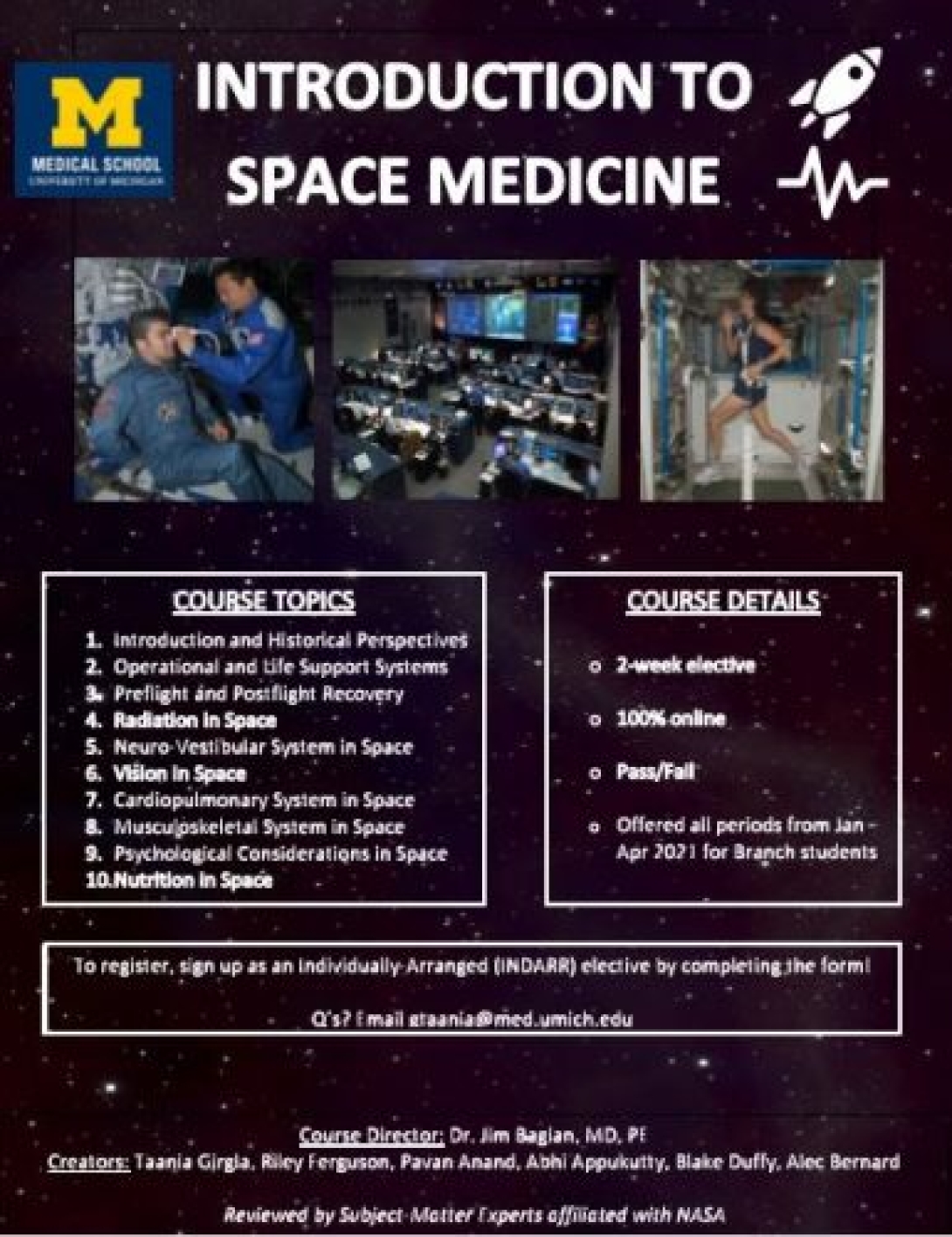
University of Michigan Medical School
Want top health & research news weekly? Sign up for Health Lab’s newsletters today!
